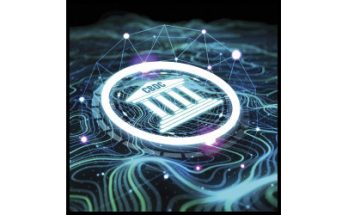“Law for Computer Scientists and Other Folk”
By Mireille Hildebrandt
Oxford University Press, published May 6, 2020
ISBN: 9780198860884
“This is the first textbook introducing law to computer scientists.”
Description
This is the first textbook introducing law to computer scientists. The book covers privacy and data protection law, cybercrime, intellectual property, private law liability and legal personhood and legal agency, next to introductions to private law, public law, criminal law and international and supranational law. It provides an overview of the practical implications of law, their theoretical underpinnings and how they affect the study and construction of computational architectures. In a constitutional democracy everyone is under the Rule of Law, including those who develop code and systems, and those who put applications on the market. It is pivotal that computer scientists and developers get to know what law and the Rule of Law require. Before talking about ethics, we need to make sure that the checks and balances of law and the Rule of Law are in place and complied with. Though it is focused on European law, it also refers to US law and aims to provide insights into what makes law, law, rather than brute force or morality, demonstrating the operations of law in a way that has global relevance. This book is geared to those who have no wish to become lawyers but are nevertheless forced to consider the salience of legal rights and obligations with regard to the construction, maintenance and protection of computational artefacts.
This is an open access title available under the terms of a CC BY-NC-ND 4.0 International licence. It is offered as a free PDF download from OUP and selected open access locations.
Reading Guide
As this is both a textbook and an essay introducing law to computer scientists (and other folk), some guidance on how to read this work seems required.
Please note this book is not an attempt to turn computer scientists into lawyers, there is no claim to completeness. It is a presentation of how law and the rule of law protect what is crucial to constitutional democracy and how that is pertinent to computer scientists and other folk. It provides a survey of legal frameworks that apply to developers of computational systems and to those who put such systems on the market or share them otherwise. They should all be aware how their actions may violate the law and what obligations they have. In a constitutional democracy, nobody is above the law.
For developers of computational systems, whether based on machine learning, blockchain, or other code, knowledge of the law is also crucial because their systems will co- determine law’s effectiveness. If computer
systems diminish the substance of human rights or render legal remedies ineffective, they diminish human agency and could even destroy the architecture of constitutional democracy. Before that happens, however, we should expect courts and legislatures to intervene. This is one more reason to pay keen attention to how law operates and to how computational systems can contribute to upholding democracy and the rule of law by protecting the substance of fundamental rights and freedoms.
This work should be read as a whole because law is an architecture that can only be properly understood if one grasps the whole as well as the parts (including the frictions between them).
Upfront, please check the glossary, linking the foundational concepts of the law to the sections that use them. Following Wittgenstein, the explanation of these concepts ‘sits’ in the way lawyers use them. The glossary thus contributes to a proper understanding of their meaning instead of closing shop by way of (formalizable) definitions.
To preserve the textbook character of the work, footnotes are sparse and only used to refer to relevant sources of law (statutes, case law, treaties), or websites. Each chapter has a concise set of canonical references at the end to enable further reading.
I wish the reader fun, pleasure, and insight. Understanding law is often like solving a puzzle, while simultaneously providing glimpses of how we organize our foundational choice architecture.
Introduction: Textbook and Essay
This book aims to introduce law to computer scientists. For that reason, it serves as a textbook, providing an overview of the practice and study of law for a specific audience. Teaching law to computer scientists will always be an attempt, an essay, to bridge the disciplinary gaps between two scientific practices that each have their own methodological demands and constraints. This book probes the middle ground, aiming to present a reasonably coherent picture of the vocabulary and grammar of modern positive law (the applicable law in a specified jurisdiction). It is geared to those who have no wish to become lawyers but are nevertheless forced to consider the salience of legal rights and obligations with regard to the construction, maintenance, and protection of computational artefacts. It aims to raise awareness and provide proper information about these legal rights and obligations, not just with regard to computer scientists themselves, but also with regard to those who will suffer or enjoy the results of their constructions. The latter is often
considered under the heading of ethics, here it is studied from the perspective of law, explaining the legal rights and obligations involved. It is therefore not a matter of individual moral preferences or intellectual reflection, but a matter of confronting ‘what law does’ when such rights and obligations are violated.
In this introduction I will briefly situate the rise of modern positive law as an affordance of a specific information and communication technology (ICT), namely the printing press, which is even better described as an information and communication infrastructure (ICI). This will be followed by an outline of the book.
Read the Full Article (PDF) »
Read More and Buy the Book »
(Please support your local bookseller.)
About the Author:
Mireille Hildebrandt is a tenured Research Professor on ‘Interfacing Law and Technology’ at Vrije Universiteit Brussels, and holds the part-time chair of Smart Environments, Data Protection and the Rule of the Law at Radboud University in the Netherlands. She is author of the recently released Law for Computer Scientists and Other Folk (Oxford University Press) available free of charge in .pdf format, no DRM, no Adobe Digital Editions, at https://bit.ly/3eOjshp






